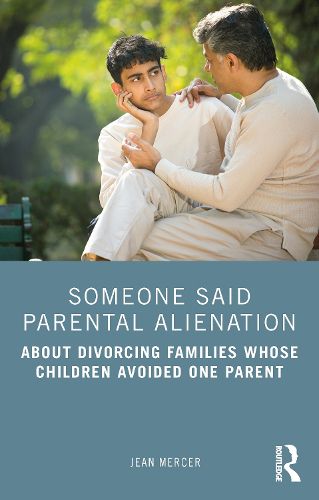Readings Newsletter
Become a Readings Member to make your shopping experience even easier.
Sign in or sign up for free!
You’re not far away from qualifying for FREE standard shipping within Australia
You’ve qualified for FREE standard shipping within Australia
The cart is loading…






This book introduces readers to the concept of parental alienation (PA), a belief system that is used with increasing frequency in judicial child custody and parenting plan decisions.
PA is essentially a legal concept without validated psychological definition, assuming that children who resist contact with one divorced parent have in many cases been "brainwashed" or persuaded to do so by the machinations of the preferred parent. PA proponents assert that courts should transfer child custody to the avoided parent and prohibit contact between the child and the preferred parent. Unfortunately, the outcomes of such decisions, as reported by parents and their now-adult children, suggest that application of the PA concept is neither safe nor effective as a response to children's resistance to contact with a parent. Providing an overview of the concept of parental alienation, methods of identifying PA cases, and court-ordered treatments for children and parents, the book uses seven case-study chapters, each introduced with a brief recapitulation of the issues, and closed with a summary of events to offer suggestions about desirable family court changes.
This is the first book to tell a range of stories about the experiences of fathers, mothers, and children who have been separated and subjected to PA interventions after allegations have been made. It will be of interest to professionals practicing in psychology, psychiatry, social work, counselling, law, and the judiciary, and anyone involved in research and in legislative efforts relevant to family courts.
$9.00 standard shipping within Australia
FREE standard shipping within Australia for orders over $100.00
Express & International shipping calculated at checkout
This book introduces readers to the concept of parental alienation (PA), a belief system that is used with increasing frequency in judicial child custody and parenting plan decisions.
PA is essentially a legal concept without validated psychological definition, assuming that children who resist contact with one divorced parent have in many cases been "brainwashed" or persuaded to do so by the machinations of the preferred parent. PA proponents assert that courts should transfer child custody to the avoided parent and prohibit contact between the child and the preferred parent. Unfortunately, the outcomes of such decisions, as reported by parents and their now-adult children, suggest that application of the PA concept is neither safe nor effective as a response to children's resistance to contact with a parent. Providing an overview of the concept of parental alienation, methods of identifying PA cases, and court-ordered treatments for children and parents, the book uses seven case-study chapters, each introduced with a brief recapitulation of the issues, and closed with a summary of events to offer suggestions about desirable family court changes.
This is the first book to tell a range of stories about the experiences of fathers, mothers, and children who have been separated and subjected to PA interventions after allegations have been made. It will be of interest to professionals practicing in psychology, psychiatry, social work, counselling, law, and the judiciary, and anyone involved in research and in legislative efforts relevant to family courts.